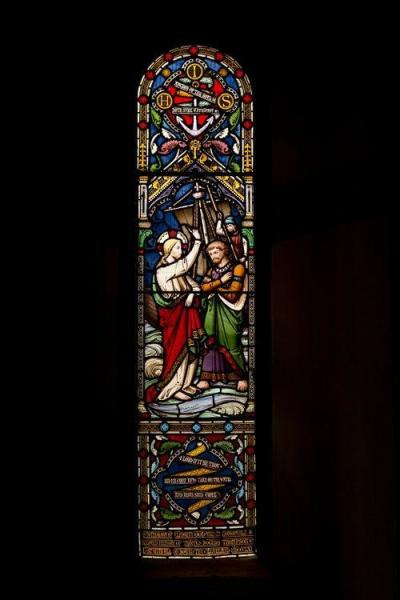
One of the hang-ups that religious people seem to have these days is self-consciousness about being religious.
Many Christians want to make a distinction between their personal faith in Christ and something else that they deem 'religious'. They have an image in their mind of religious people and they are eager to distinguish themselves from them.
I have a couple of problems with this viewpoint.
Dictionary definitions
Firstly, if dictionary definitions still mean anything they can't get away from the fact they are religious whether they like it or not.
Let's have a look at some definitions according to the Google dictionary:
Religious - relating to or believing in a religion.
So, what is religion?
Religion – (1) the belief in and worship of a superhuman controlling power, especially a personal God or gods.
(2) a pursuit or interest followed with great devotion.
According to these definitions all committed Christians are religious.
Now some may argue that this is just semantics and the word has come to take on another meaning and refers to someone who is legalistic and more focused on following rules and dead formalism than a vibrant life-giving relationship with God.
These are certainly valid criticisms and are things that we want to avoid as followers of Christ. But I think 'religious' is the wrong word.
This is because I think it sometimes leads to rejecting or downplaying valid Christian truths as 'religious' and judging people as 'religious' and therefore spiritually dead or legalistic because we don't understand why they value expressions of faith that we don't.
Let me give some examples.
Individualism, tradition and ritual
It is common for the non-religious religious to emphasize that the only thing that matters is a personal relationship with Jesus. But when you put legs on what that looks like in practice it looks like religion.
Over-emphasis on personal relationship can lead to an individualistic approach to faith that downplays the context for that relationship. God created us for community. Following Jesus practiced in community creates culture. Culture creates tradition and ritual. This is all inevitable and natural. Should we be so quick to get away from this?
It is true that churches can be too rigid and not open to the freedom of following the Holy Spirit. But sometimes believers from very ritualistic and even rigid traditions are deeply spiritual people and people who fall on the floor every Sunday at a Pentecostal church have a shallow faith that lacks substance. The outward appearance of religious/non-religious is not necessarily any indication of what is going on in the heart.
Rules vs. relationship?
The non-religious religious often say it is about relationship not following rules. But is God against following rules? Didn't Jesus say if you love me you will obey my commandments? What about Psalm 119 which is all about following rules and precepts as a way of showing one's love for God?
It is true that we need to be on guard against legalism and petty and irrational rules that get in the way of true holiness, but the Bible is full of standards of what a holy life looks like not just 'anything goes' as long as we have a personal relationship with Jesus. A great example is in James where he describes godly religion as caring for the poor and keeping oneself pure from worldliness.
Grace and holiness are both important and we need to get the balance right, not just view any talk of holiness as religious.
Are we communicating what we think we are?
Are we confusing the genuinely non-religious by our talk of being non-religious? When we go to church, read the Bible, pray and do other things that are generally associated with religion it may sound a bit hollow, illogical and confusing to someone who isn't in with the fashionable ideas in evangelical culture.
In my experience when you say to a non-Christian person you are not religious they think you mean you don't take your faith very seriously. That is the opposite of what we are trying to communicate.
My concern is maybe this whole 'not being religious but loving Jesus' thing is really more an evangelical hang-up than an effective pitch for the Christian faith in contemporary culture.
Reaching out to a religion-starved culture
If it helps you to conceptualize your faith in a way that is meaningful for you that is fine but for some people, the idea of being religious helps them make Christianity more meaningful for them too.
I recently started attending a church that meets in an old-fashioned church building with stained glass windows. When I was younger I thought that a church building shouldn't have a cross on it or look too 'religious'. Now I find something deeply reverent and beautiful in it that draws me closer to God and an awareness and appreciation of what He has done in our midst in the past.
In an age when many people in the secular West are seeking identity in the past and trying to rediscover their roots and find who they are and where they have come from, we have an opportunity to re-introduce them to the historical religion of their ancestors. We don't need to repackage Christianity for the modern consumeristic and decadent West but give seekers the life-giving Jesus-centred religion that has so enriched our culture and made the West great.

Conor is from Adelaide, South Australia. He has a history degree from Tabor College and has a gardening business. Conor has played in Christian heavy metal band Synnove. He is involved in Operation Canaan, a ministry that prays and intercedes for the music scene. He loves God, music, reading, traveling and thinking deeply about philosophy and current events in the world.
Conor Ryan’s previous articles may be viewed at www.pressserviceinternational.org/conor-ryan.html